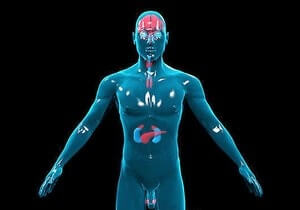 The endocrine system is a link between all organs, the regulation of which occurs through the release of hormones - the active substances of the organs of this system. This system includes such endocrine glands as the pituitary gland, thyroid gland, adrenal glands, pancreas, ovaries and testes, mammary gland, parathyroid gland.
The endocrine system is a link between all organs, the regulation of which occurs through the release of hormones - the active substances of the organs of this system. This system includes such endocrine glands as the pituitary gland, thyroid gland, adrenal glands, pancreas, ovaries and testes, mammary gland, parathyroid gland.
The main conductor of hormone secretion is the pituitary gland. There is such a thing as an "endocrine ring", which clearly shows the directly proportional dependence of the activity of all endocrine glands among themselves. When one of these glands ceases to function normally, either a compensatory replacement by another gland takes place, and it takes over part of the functioning or the disordered work of the whole organism.
The endocrine system is in dire need of proper protein nutrition for the synthesis of hormones, as well as 15 essential minerals, 12 vitamins. For example, thyroid hormones cannot be synthesized without the amino acid tyrosine and an element such as iodine. Hormones, together with the nervous system, carry out neurohumoral regulation. That is, our reaction to stress and adaptation after it entirely depends on the correction of hormones.
 The endocrine system is a link between all organs, the regulation of which occurs through the release of hormones - the active substances of the organs of this system. This system includes such endocrine glands as the pituitary gland, thyroid gland, adrenal glands, pancreas, ovaries and testes, mammary gland, parathyroid gland.
The endocrine system is a link between all organs, the regulation of which occurs through the release of hormones - the active substances of the organs of this system. This system includes such endocrine glands as the pituitary gland, thyroid gland, adrenal glands, pancreas, ovaries and testes, mammary gland, parathyroid gland.